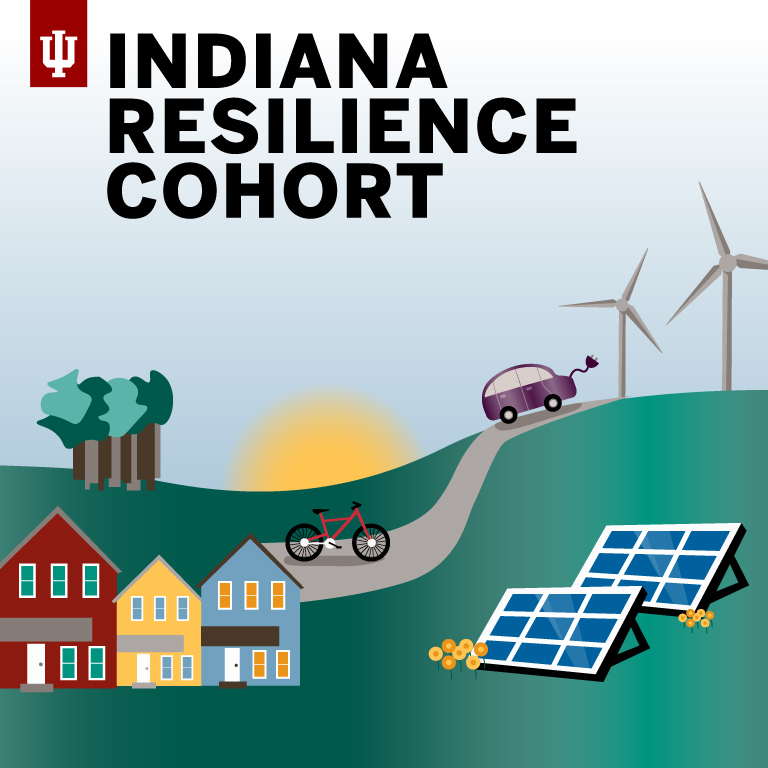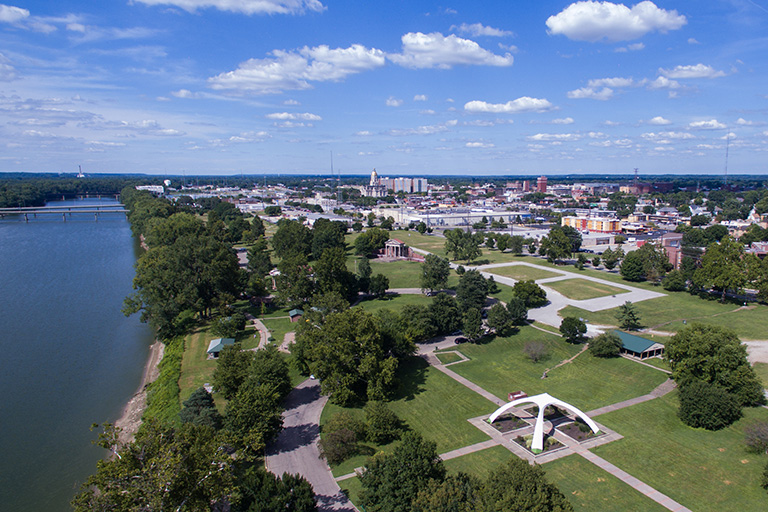Through a partnership with Indiana University, eight Indiana local governments are embarking on a year-long process to understand how their communities are vulnerable to the impacts of climate change, such as flooding and extreme heat, and to make plans to reduce risk.
The program, led by IU’s Environmental Resilience Institute (ERI), is one of the first community-focused climate resilience planning efforts in the state and will help local governments anticipate, prepare for, and respond to extreme weather events and other risks linked to climate change. Participants include Bloomington, Carmel, Columbus, Gary, Monroe County, New Albany, South Bend, and Terre Haute.
“Even as Hoosiers take actions to reduce heat-trapping greenhouse gas emissions and avoid the worst potential impacts of climate change down the road, we must also become more resilient to the changes that have become unavoidable,” said ERI Managing Director Sarah Mincey. “Cities, towns, and counties that take the time to assess and plan for anticipated impacts today will be better positioned to cope with conditions that affect Hoosiers’ health and livelihoods.”




